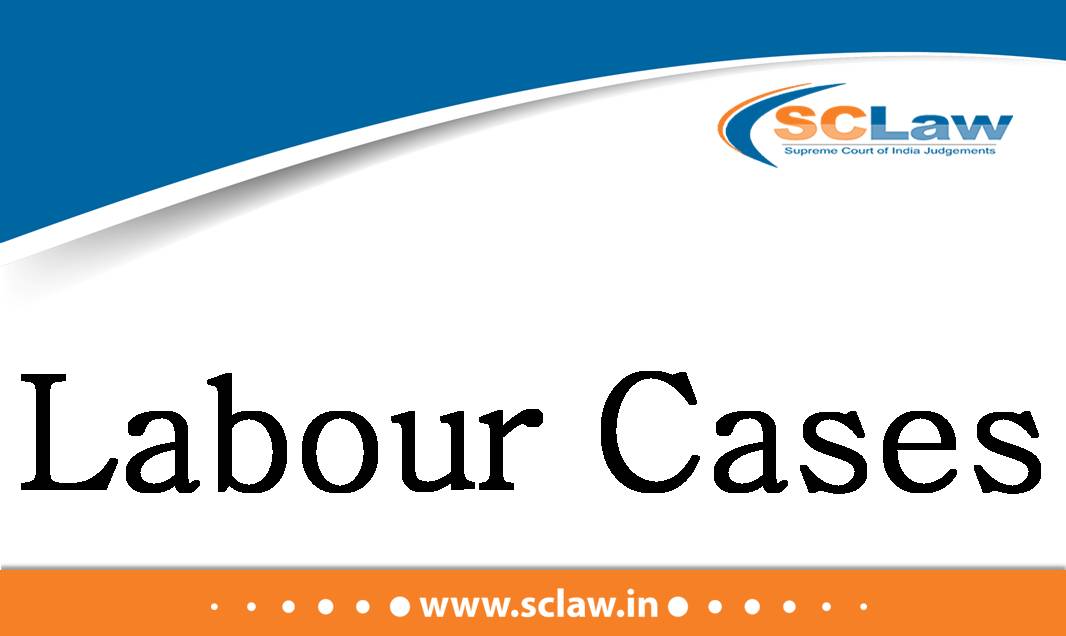Decided on : 05-12-2019 Penal Code, 1860 (IPC) – Sections 120B, 302, 201, 34 – Arms Act, 1959 – Sections 25, 27, 54 and 59 – Criminal Procedure Code, 1973 (CrPC) – Sections 223, 227, 228 and 391 – Evidence Act, 1872 – Sections 8 and 10 – After the commission of the crime, accused absconded and did not join the investigation – Prosecution has made out a strong prima facie case and the materials on record are sufficient to frame charges against accused.
SUPREME COURT OF INDIA DIVISION BENCH STATE OF NCT OF DELHI — Appellant Vs. SHIV CHARAN BANSAL AND OTHERS — Respondent ( Before : Indu Malhotra and R. Subhash Reddy,…
Decided on : 05-12-2019 Criminal Procedure Code, 1973 (CrPC) – Sections 161 and 439 – Penal Code, 1908 (IPC) – Sections 147, 148, 149, 302 and 397 – Murder – Common intention – Bail granted by High Court – Appeal against – Merely recording “having perused the record” and “on the facts and circumstances of the case” does not sub-serve the purpose of a reasoned judicial order.
SUPREME COURT OF INDIA DIVISION BENCH MAHIPAL — Appellant Vs. RAJESH KUMAR @ POLIA AND ANOTHER — Respondent ( Before : Dr Dhananjaya Y Chandrachud and Hrishikesh Roy, JJ. )…
Decided on : 05-12-2019 – Denial of voluntary retirement does not mitigate the legal consequences that flow from resignation – Denial of voluntary retirement cannot be invoked before this Court to claim pensionary benefits when the first respondent has admittedly resigned. Even if the first respondent had served twenty years, under Rule 26 of the CCS Pension Rules his past service stands forfeited upon resignation.
SUPREME COURT OF INDIA DIVISION BENCH BSES YAMUNA POWER LTD.— Appellant Vs. SH. GHANSHYAM CHAND SHARMA AND ANOTHER — Respondent ( Before : Dr Dhananjaya Y Chandrachud and Hrishikesh Roy,…
Decided on : 06-12-2019 – Uttar Pradesh Jal Nigam Subordinate Engineering Service Regulations, 1978 – Regulations 16(2), 17, 18, 20 and 23 – Appointment – Determination of Seniority – Method of giving appointment to the senior most person of each category is only a fortuitus circumstance as such appointments were made dehors the merit.
SUPREME COURT OF INDIA DIVISION BENCH DHARMENDRA PRASAD AND OTHERS — Appellant Vs. SUNIL KUMAR AND OTHERS — Respondent ( Before : L. Nageswara Rao and Hemant Gupta, JJ. )…
Decided on : 06-12-2019 – Service law – Dismissal – Demand and acceptance of illegal gratification -It is settled law that interference with the orders passed pursuant to a departmental inquiry can be only in case of ‘no evidence’ – Sufficiency of evidence is not within the realm of judicial review
SUPREME COURT OF INDIA DIVISION BENCH THE STATE OF BIHAR AND OTHERS — Appellant Vs. PHULPARI KUMARI — Respondent ( Before : L. Nageswara Rao and Hemant Gupta, JJ. )…
Decided on : 06-12-2019 After having accepted the appointment in FCI as per the Office Order dated 18.09.1973, it is not open to the Appellant-Union to take up the cause of the work charge employees and claim on their behalf benefits similar to those granted to the regular employees. – Appeals dismissed.
SUPREME COURT OF INDIA DIVISION BENCH KANDLA PORT WORKERS UNION @APPELANT Vs. FCI AND OTHERS — Respondent ( Before : L. Nageswara Rao and Hemant Gupta, JJ. ) Civil Appeal…
Decided on : 06-12-2019 – Constitution of India, 1950 – Article 14 – There is no concept of negative equality under Article 14 of the Constitution of India – Appellants cannot, as a matter of right, claim appointment on the basis of two ineligible persons being given the benefit and no direction can be given to the Respondents to perpetuate illegality
SUPREME COURT OF INDIA DIVISION BENCH HAV (OFC) RWMWI BORGOYARY AND OTHER ETC. — Appellant Vs. UNION OF INDIA AND OTHERS — Respondent ( Before : L. Nageswara Rao and…
Decided on : 06-12-2019 Uttar Pradesh Industrial Training Institutes (Instructors) Service (Second Amendment) Rules, 2003 – Rule 8 – Appointment – Academic Qualification – Eligibility condition is that a candidate must have obtained a certificate in respective trade from NCVT – It is not necessary that a qualification prescribed in the Rules has to be possessed in one certificate
SUPREME COURT OF INDIA DIVISION BENCH RAJESH KUMAR DWIVEDI — Appellant Vs. STATE OF U.P AND ANOTHER — Respondent ( Before : L. Nageswara Rao and Hemant Gupta, JJ. )…
Decided on : 06-12-2019 – Penal Code, 1860 (IPC) – Section 300 and 302 – Murder – Criminal Procedure Code, 1973 (CrPC) – Section 161 – Examination of witnesses by police – Extra-judicial confession -Extra-judicial confession of accused need not in all cases be corroborated
SUPREME COURT OF INDIA DIVISION BENCH DARSHAN SINGH — Appellant Vs. STATE OF PUNJAB — Respondent ( Before : L. Nageswara Rao and Hemant Gupta, JJ. ) Criminal Appeal No.…
Penal Code, 1860 (IPC) – Section 397 – Dacoity – Appeal against conviction and sentence – High Court itself has found prosecution witnesses have not been able to identify the appellant
SUPREME COURT OF INDIA DIVISION BENCH NAGARAJA — Appellant Vs. STATE OF KARNATAKA — Respondent ( Before : Sanjay Kishan Kaul and K.M. Joseph, JJ. ) Criminal Appeal No. 66…










